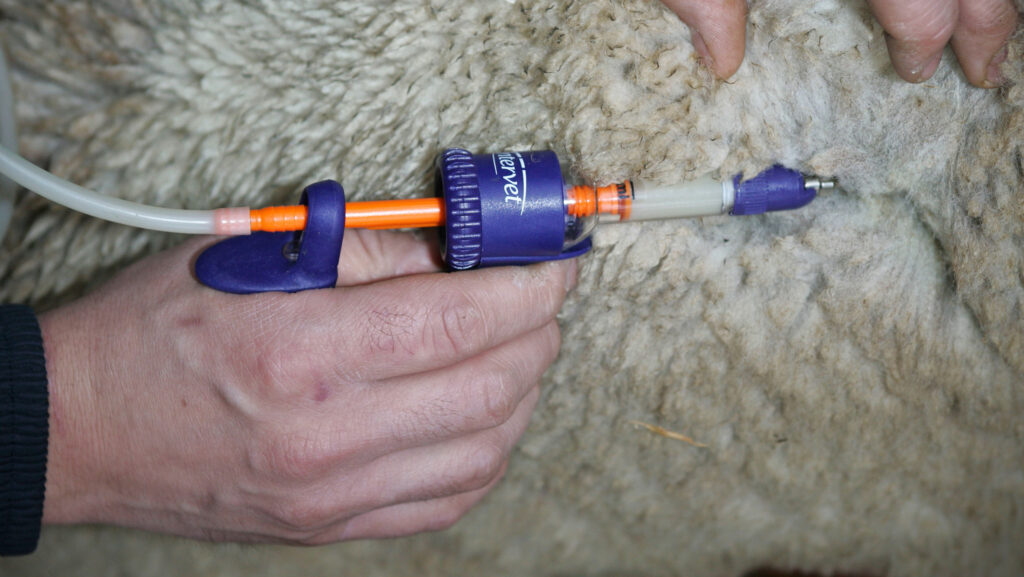First new bluetongue vaccines available for use
 © Tim Scrivener
© Tim Scrivener Cattle and sheep farmers now have the option of vaccinating their animals against bluetongue after the first doses of vaccine arrived in the UK.
Boehringer Ingelheim’s Bultavo 3 is among the first vaccines delivered, along with Virbac’s Syvazul BTV3, while Ceva Animal Health’s Bluevac-3 will be available in the UK from mid-October.
These vaccines have been granted emergency use authorisation by Defra, with a general licence permitting their use in restricted zones (RZs) in England.
See also: Analysis: What farmers need to know about bluetongue
Livestock keepers not located in high-risk counties can apply to the Animal and Plant Health Agency (Apha) for a specific licence to use the vaccine.
While these vaccines can significantly reduce the impact of BTV-3, including preventing severe symptoms and mortality in sheep, they do not fully prevent the virus.
All three vaccines are designed for one dose in sheep and two doses, three weeks apart, for cattle, with immunity developing three weeks post-administration.
Dr Sioned Timothy, livestock technical manager at Boehringer Ingelheim Animal Health UK, said feedback from EU farmers who had used Bultavo 3 to vaccinate their animals against BTV-3 had been positive.
“What we are observing in our clinical trials and fields is that it prevents severe clinical symptoms of bluetongue virus in sheep, especially mortality,” Dr Timothy said.
“Also, the reduction of viraemia [the presence of the virus in the blood] in vaccinated animals is key to preventing onward spread of the disease.”
Pros and cons
Although the vaccines are safe for use in pregnant cows and ewes, their safety in breeding males remains uncertain.
Vaccine costs in the Netherlands and Germany have been equivalent to £8-£10 an animal.
Bluetongue is spread by biting midges infected with the virus that are being blown across from the Continent to the UK.
Phil Stocker, chief executive of the National Sheep Association, said: “Farmers should talk to their vets about the pros and cons of vaccination.
“The decision over whether to vaccinate animals now or wait until the spring is not clear cut. Weather conditions are a big factor in this. We don’t quite know when colder temperatures will arrive and reduce midge activity.
“However, we are seeing more and more cases – there are 98 confirmed cases now. If farmers do want to protect their stock, vaccination is definitely worth them considering.”
Restricted Zone extended
Following confirmed cases close to the edge of the RZ in eastern England, Defra has extended it to cover all of Lincolnshire, Cambridgeshire, Bedfordshire, Hertfordshire, Greater London, Surrey and West Sussex.
Mr Stocker urged farmers to be “very careful” when moving animals within the extended RZ, especially near the edge of the zone, as this risked further spread of the disease.
